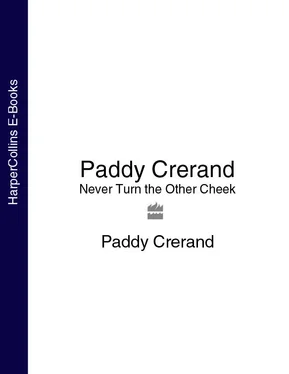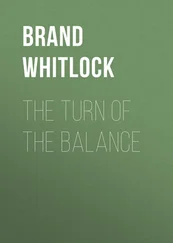Gweedore is officially the largest Irish-speaking parish in Ireland – Gerry Adams learned his Irish there – and, despite only having a population of 5,000, has some notable former residents. Vincent ‘Mad Dog’ Coll was born there and was related to my family. He left Gweedore at an early age and became an enforcer for the mafia in early twentieth-century New York City. He grew up on the streets of the Bronx, where he joined a street gang and befriended the gangster Dutch Schultz. As Schultz’s criminal empire grew in power, he employed Coll as an assassin. During the 1920s, Coll developed a risky but lucrative scam whereby he would kidnap powerful gangsters at gunpoint and extort a ransom from his captive’s associates before releasing them. He knew that the victims would not report it to the police, especially because, being criminals, they would have a hard time explaining to the authorities how they happened to have such huge supplies of cash in order to pay for their release. Coll is one of the villains depicted in the film The Untouchables .
Coll is distantly related to former Northern Ireland MP Brid Rodgers, who is also from Gweedore. She became the leader of the Social Democratic and Labour Party (SDLP) and was involved in the Irish Civil Rights Movement from 1965.
Another son of Gweedore is James Duffy, an Irish recipient of the Victoria Cross. He was 28 years old, and a private in the 6th Battalion of the Royal Enniskillen Fusiliers during the First World War, when he was awarded the VC for gallantry in Palestine.
The musical heritage of Gweedore is very rich. Clannad and Enya are from there. A lot of my friends from Glasgow moved back to Donegal and still live there. If I go to Glasgow these days I have to get a hotel room and that seems strange.
In 1949 there was a change in our family life. My mum got married again to a fella called Charlie Duffy. He was a great man who was also from Gweedore. It was a big burden for him to take on a woman with four kids. They went on to have another two girls. I used to see Charlie as my mate. He never hit me once in his life when it was the done thing to give a kid a smack if he stepped out of line. Mum would hit us and it never did me any harm, but Charlie didn’t. I’d walk with Charlie on his way to work just so I could be with him. He would wind me up by pretending to be a Rangers fan.
Me and my brother John used to argue about Celtic and Rangers, too, but we were very close. We played together all the time and he was a good footballer. John told me that he wanted to be a priest. He became poorly when he was twelve with rheumatic fever and I went to see him in hospital. Everything seemed all right because he was talking to me.
But everything wasn’t all right. I was sitting in the house one Saturday evening listening to the football results on the radio when we were told that John was dead. I couldn’t understand it because I had been to see him a few days before and he seemed fine. I was too young to properly understand what death was, but my mother was heartbroken. You don’t expect to outlive your kids and she was crying all the time. They brought the coffin to the house because there was nowhere else to take it. It wasn’t a big coffin, just a small thing. He was buried in the Catholic cemetery next to Celtic Park, not in the Protestant graveyard behind the jungle stand (the name Celtic fans gave to the covered terrace where the most vocal Celts stood because they said it was full of animals). Billy Connolly used to joke about those graveyards. ‘Why don’t they get buried together? Are they going to get up and fight with each other?’
All the relations came over for John’s funeral. A lot of drink was taken. It’s an old standing Irish joke that the only difference between a wedding and a wake is that there is one less drunk at the wake. It’s a great way of getting over things and I think the drink helped the adults.
I missed John terribly. When I wanted to play with him he wasn’t there. I missed talking to him about football and helping mum do household chores with him. I cried a lot and felt very alone. The adults could speak about it, but I couldn’t. When I did try to talk about it with mum she said that John wouldn’t be coming home again. The mood in the house was awful, but the adults tried to be normal with me.
When you are that young you can be resilient to almost anything and you adapt quickly. You just do. I had so many friends that before long I was immersed in football again and life continued as normal, only John wasn’t there. I never spoke to my mum about John in later years. I find death very hard to accept and I think she did too. My sister Bridie lost her husband when he was quite young and then lost her son in a car crash. He was returning from a Simple Minds concert in Dublin and driving back to Donegal. So what happened to my mum also happened to my sister.
Not long after John died, I did well in my exams and attained a very high pass mark to go to Holyrood, a school with a good reputation. They had their own red shale football pitches. Scottish international Alan Brazil went there, as did Eddie Gray who played for Leeds United. One of my schoolteachers, Mr Murphy, was the announcer at Celtic Park. Our school had a good team and we won the final of a schools’ competition at Hampden Park in 1955.
I read newspapers a lot more as I entered my teenage years and became very left wing. I still am today, but I’m much milder than when I was younger. I started becoming more politically aware in 1951 when Churchill got into power again. The war had been over quite a while but there was still rationing for people who had no money.
The political situation in Ireland was always pertinent for me. I came from a family that wanted a united Ireland and I still believe in that. I have never accepted the violence and, hopefully, we have seen the last of The Troubles. I’m pleased that there has been a lot of political progress in the last decade. People have realized that you get progress by talking and not by shooting each other and I’m more optimistic about the future of Ireland now than I have ever been.
The problems affected football as well of course. I was indifferent to Glasgow Rangers until I was about thirteen when I found out that they didn’t sign Catholics. The discrimination enraged me, yet it was something Catholics were used to.
I never had a girlfriend. If you had one aged fourteen in Glasgow then you had to fight everybody because you were considered a softie. Besides, I couldn’t go out on a Friday night because I always played football on a Saturday morning.
As I got older, I’d cross the River Clyde with my mates and go into the centre of Glasgow. It was an adventure going into town and seeing different types of people for the first time in my life. I looked in the windows of shops and marvelled at all the things that people could buy and we couldn’t. Plenty of my mates went stealing but I was never tempted. I had that Catholic mentality in my head that if I committed a sin then I’d go to hell. That, and the prospect of having to face my mother, who would have killed me.
On the football field my life was progressing well. Up to the age of fifteen I was a prolific centre-forward. I was stronger than most of the other players and found scoring goals easy. I wasn’t quick, but I could brush players off and I had a hard, accurate shot. My reputation was growing locally and I was approached by a man called Hugh Wiseman. He ran a football team called RanCel, short for Rangers and Celtic. He wanted to get Celtic and Rangers fans closer together and asked me to play in his team on a Saturday afternoon. But I just wanted to watch Celtic, especially as I had just joined a Celtic supporters’ club and travelled on a bus with them to matches. They used to subsidize the travel for the young fans and that meant I could go to away games, loving the experience of travelling with my friends. My mother got the needle with me and told me that I couldn’t let Mr Wiseman down. Everyone knew him because he used to keep the toilets clean on Cumberland Street. So I didn’t let him down and played. He got me my first pair of football boots. Mr Wiseman encouraged me to play in midfield rather than up front. I could hit the ball a considerable distance accurately and he thought that I was better suited to playing in the middle.
Читать дальше












